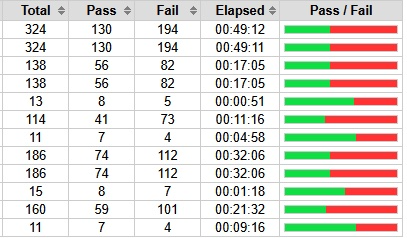
Implementations of the Popular MQTT – Publish and Subscribe Protocol, the Standard for IoT Messaging – Now Subject to Rigorous Testing
IWL today announced a new addition to its family of network protocol test suites: the IWL MQTT Test Suite
MQTT implementers have an opportunity to test their MQTT brokers (servers) with a high quality, commercial test suite. The initial set of 324 tests automatically find, identify, and report bugs and anomalies in MQTT brokers, saving hours of manual testing time.
See the MQTT Test Suite in action
MQTT is a lightweight, low-power/bandwidth, publish/subscribe messaging protocol ideal for sensors, mobile devices, and the Internet of Things (IoT).
MQTT is widely deployed, serving as the foundation message transport in Amazon’s AWS IoT. MQTT client libraries are already in-place in common development tool chains for IoT devices. And there are several MQTT brokers (servers) ranging from the open-source Mosquitto … to large scale cloud deployments from Amazon, Microsoft, IBM, Oracle, and the Apache Foundation.
IWL’s MQTT Test Suite may be used to evaluate the quality of MQTT brokers (servers); MQTT client tests are scheduled for later in 2021.
The IWL MQTT Test Suite supports IoT products implementing the OASIS standards: MQTT 3.1.1 as well as MQTT 5.0.
The new IWL MQTT Test Suite incorporates the Robot Framework for easy integration of the IWL MQTT Test Suite with other test harnesses and test tools. In addition to the web-based, graphical user interface, the MQTT Test Suite supports scripting via Python or shell commands via the Command Line Interface.
The IWL MQTT Test Suite runs in a Docker environment, available on macOS, Windows 10, and 64-bit Linux installations.

MQTT is the newest test suite in the IWL family. In addition to the MQTT Test Suite, IWL offers test suites for SNMP, TCP, IPv4 and IPv6, ARP, DHCP, SIP and UDP.
The MQTT Test Suite is available now.
Free Trials are available to qualified organizations.
To reserve your copy, contact info@iwl.com
For more information on MQTT, see the MQTT Tutorial